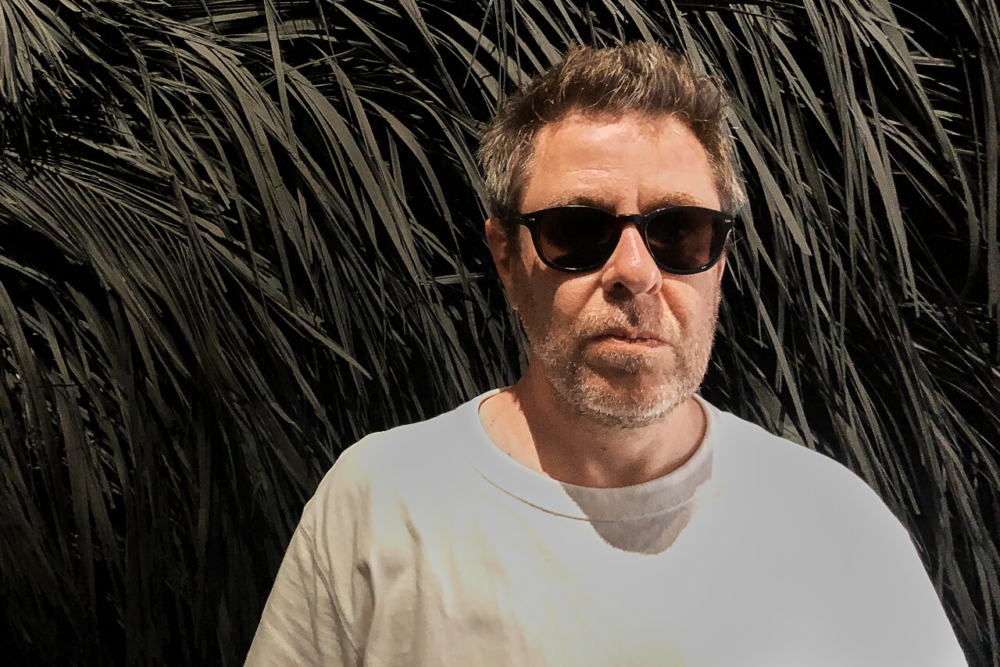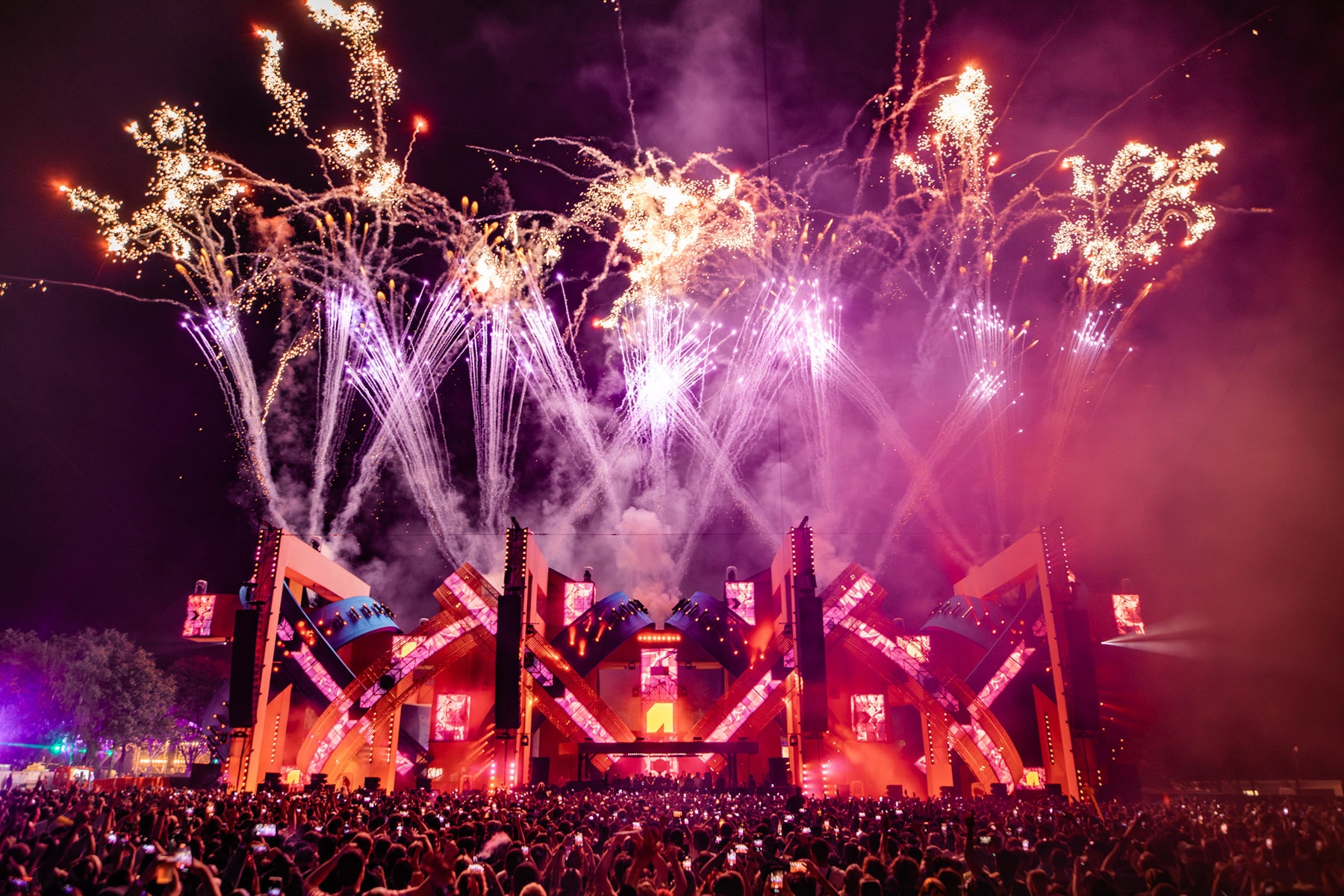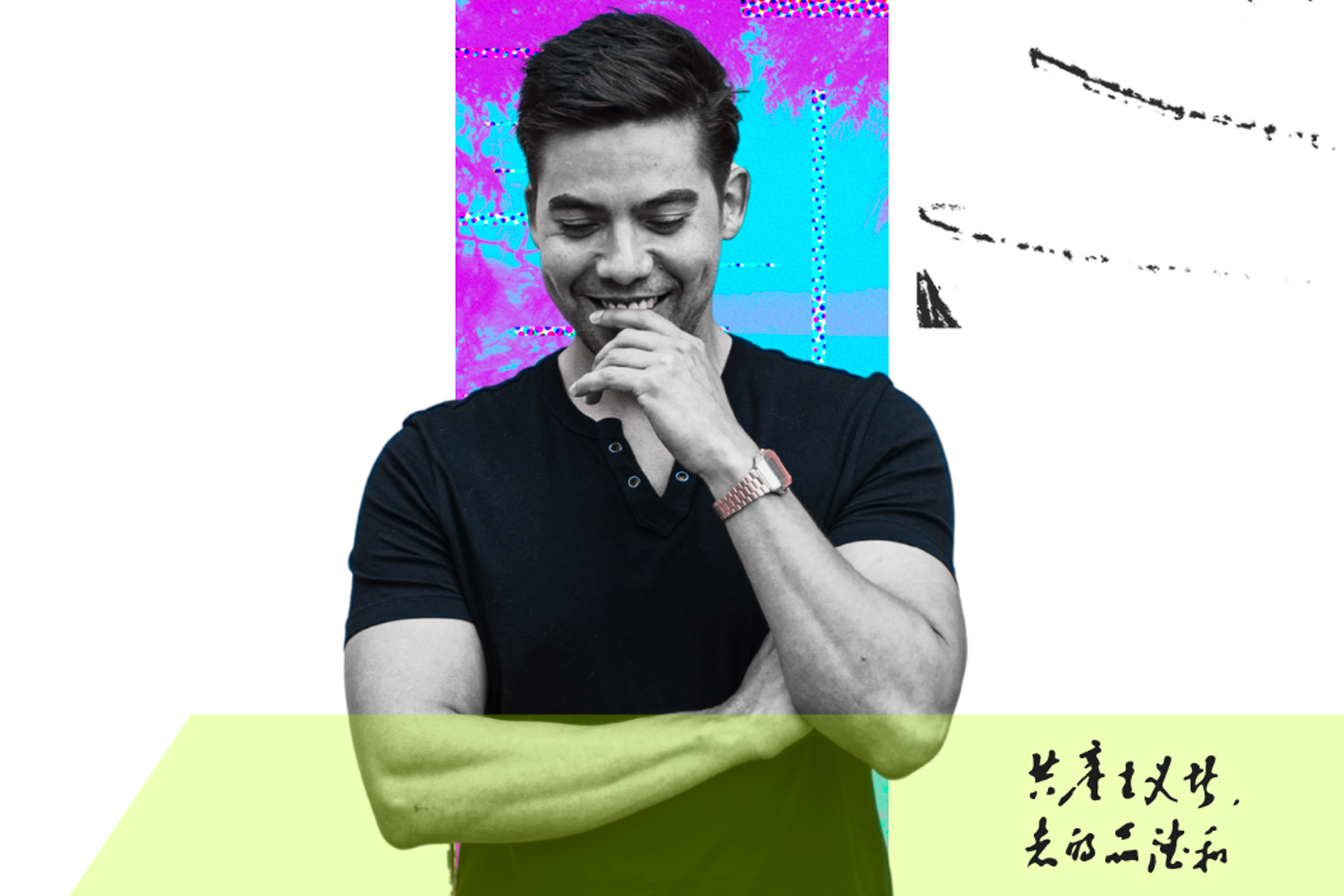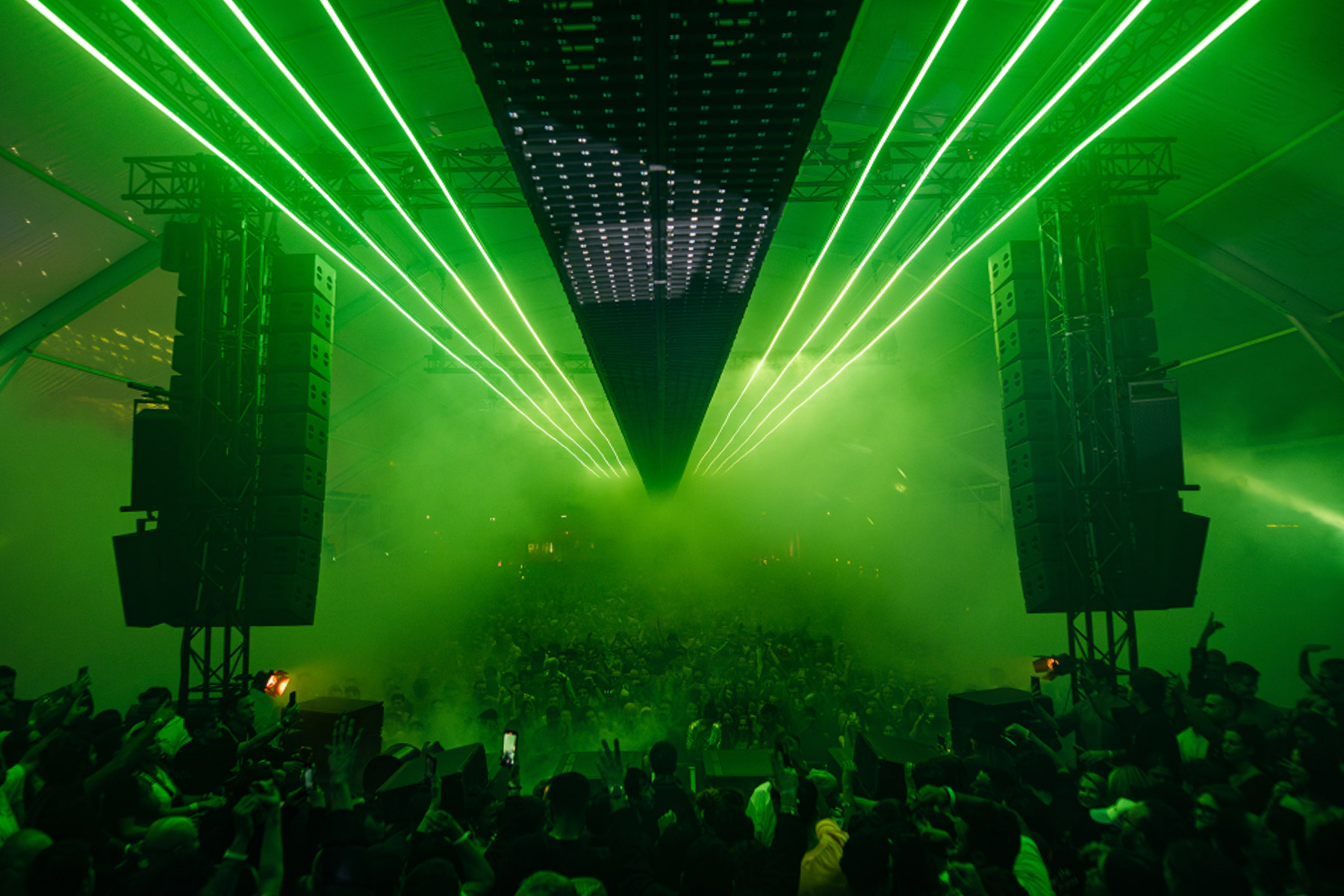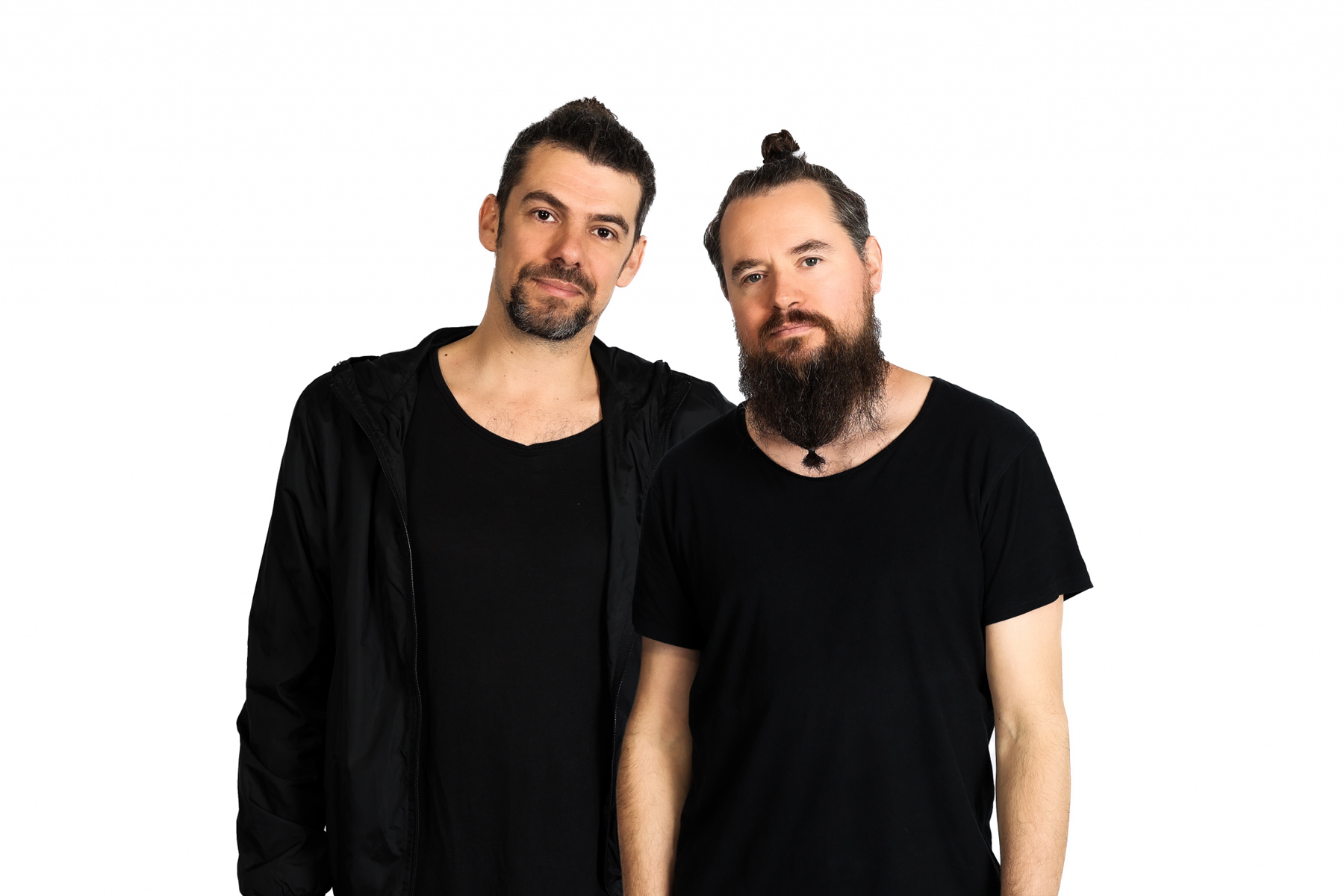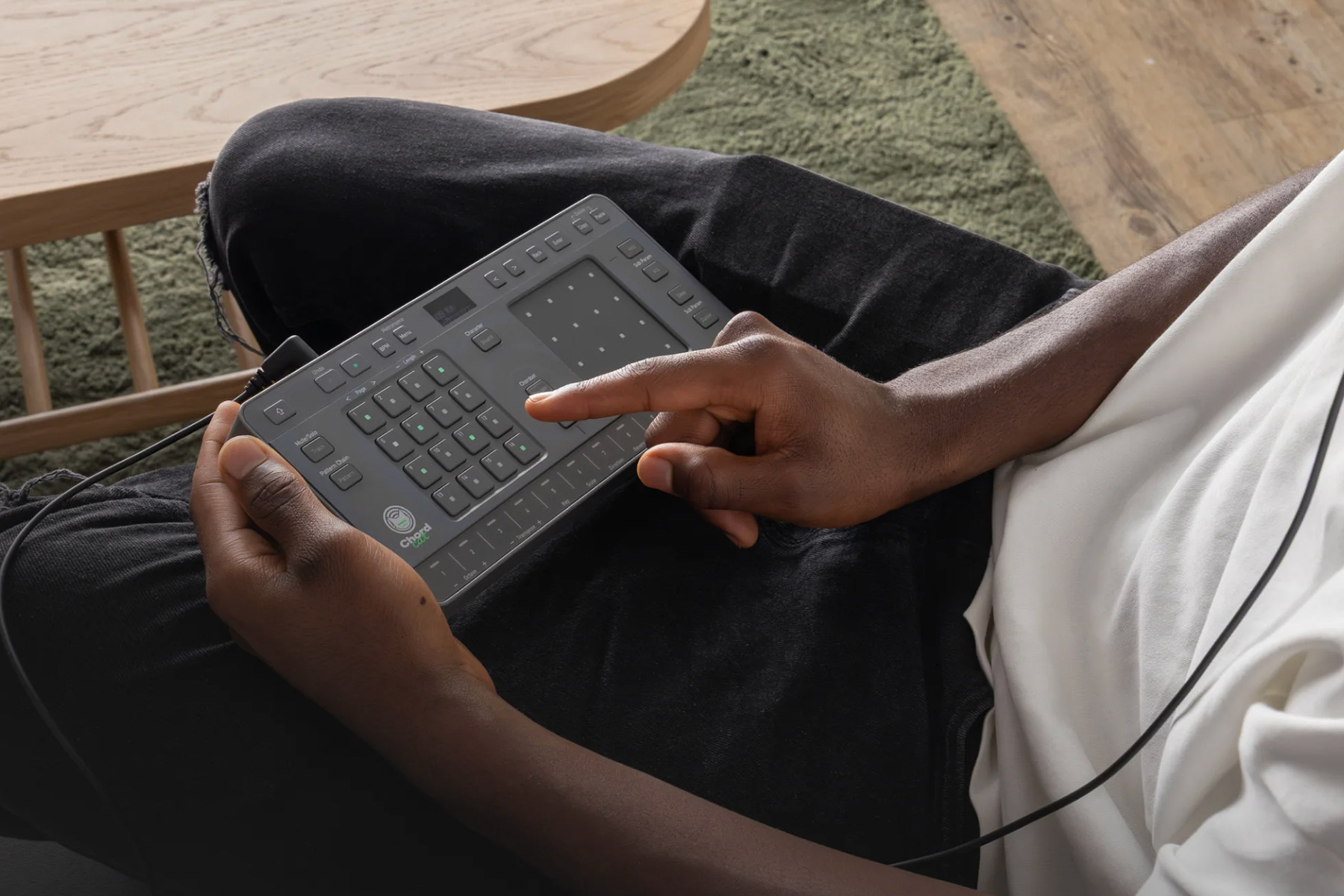After excursions into hip-hop, rap, and film music, Austrian producer and musician Urbs has returned to the downtempo and trip-hop styles that were the cornerstones of his most successful work, discovering his very own niche along the way.
Using obscure samples as well as traditional instrumentation for his impressionistic instrumental pieces he takes us to ‘Geheimland’, the secret land of our imagination where things are not as they seem.
EG caught up with Urbs to learn more about the drop of ‘Geheimland’, his rich history in the industry, past records, politics, and more.
EG: Hello Urbs, welcome to EG! Can you tell us about your background and how you first got into music production?
Urbs: Thanks for the invite. I was a passionate listener from a very young age and I loved the classical music my father played, mostly romantic composers. Then I was of course listening to the charts music of the era and to all kinds of mixtapes lying around from my older siblings. I later discovered bands like Depeche Mode and The Cure, then the independent music, punk, and noise rock of the late Eighties and early Nineties.
After moving to the big city, I got more and more interested in hip hop and it felt like something I could do rather than pick up a guitar. I met DJ Chaoz and we started making beats with an E-mu sampler and an Atari. It was 1996 and we tried to emulate the dope beats people like Kenny Dope produced. We were clearly unable to do that, so the music sounded kind of original. We released it as Urbs & Chaoz, and later I bought some of his equipment and started doing stuff on my own.
EG: Your early work as Urbs & Chaoz, and Urbs & Cutex was heavily influenced by hip hop and was dubbed “Dope Beat” in central Europe. Can you tell us more about this time in your career?
Urbs: “Dope Beat” was a term coined by Kenny Dope and was a sub-sub-genre in hip hop, mostly produced by people who also made house music. They often used loops from existing hip-hop records and arranged them in a way that was more akin to house music but in the original hip-hop tempo. Louie Vega, Armand Van Helden, Willie Rosario, Nubian Crackers, Peter Presta, and some others. Then you had Mark the 45 King, who released dozens of instrumental records and they were all fantastic. We thought this was the future of hip-hop! Here in Vienna, DJ DSL was a godlike figure and he played this abstract form of hip-hop in long sets that were mostly instrumental, often going for six hours or more, using doubles of every record to further extend the tracks and seamlessly mix songs. A completely unique and hypnotic style that influenced a lot of musicians in Vienna like Kruder & Dorfmeister, the Cheap Records guys, and finally us, hip-hop kids. DJ DSL was and still is the undisputed godfather of Austrian electronic music, although he’s now a graphic artist and typograph who designed my two latest album covers, including ‘Geheimland’.
EG: Your music has been described as a mix of downtempo and trip-hop styles, what draws you to these genres?
Urbs: It was a way to incorporate all the other genres I loved, sampling the records I had that were non-funky. A natural development and not really intentional. And I prefer slower music because there’s more space between the notes and more room for groove. That was even the case when I was still listening to rock exclusively. Anyway, to this day I still mostly use the song structures of the “dope beat” style I started out with. I’m only learning to disguise it in a more elegant way.
EG: You´ve had a number of notable collaborations throughout your career, can you tell us about a particularly memorable one?
Urbs: Mixing ‘Toujours Le Meme Film’ with Peter Kruder was a particularly beautiful experience. We basically lived in his studio for a week and it seemed magical. He knows so much about music production and he used his knowledge to put some magic on that record without changing my material too much. We did ‘Requiem for a Love Affair’ on the last day. We started at midnight and worked until 7 in the morning, at an earsplitting volume, with the windows open, chain-smoking weed. Listen to that song and imagine the scenery, the sun coming up over the city listening to this kind of music on repeat, being beyond high… I still get goosebumps thinking about it.
EG: Can you talk about the success of your solo album ‘Toujours Le Meme Film’ and how your love for film music influenced the album?
Urbs: I clearly remember one time using an old remote control as a toy spaceship when I was a little child, moving it slowly through the air, making swooshing noises, and ‘Once Upon a Time in the West’ was playing on my cassette player. In my mind, it was the perfect soundtrack for my fantasy space adventure. My uncle was a local DJ and always made the most eclectic tapes for us. Maybe that did something to me, but I always had an affinity for those old soundtracks. So when I started making music, I already had quite a collection, and looking for samples on them was a logical thing to do. The same goes for Gainsbourg, Francis Lai, John Barry, French, and other European chansons. I had these records and made tracks with them that were fun to do, but unreleasable due to my lack of skills and the over-familiarity with the samples.
Around 2003, those songs became a bit more sophisticated and I started to compose myself, using the E-mu farfisa, harpsichord, and grand piano presets. Combined with a few not-so-familiar samples, that became ‘Toujours Le Meme Film’. The demo struck a chord with Peter Kruder who offered to mix it. He convinced Mr. Dorfmeister to release it on G-Stone, which was a hot label at the time, so it reached a lot of people and many still seem to love that record. To me, it sounds very naive in a good way and in some places in a not-so-good way. I grew to hate the artwork as it doesn’t leave enough room for imagination, but I still love most of the songs. Anyway, the album proved to be an unrepeatable exercise.
“To this day I still mostly use the song structures of the “dope beat” style I started out with. I’m only learning to disguise it in a more elegant way”
EG: You´ve also worked on film music for various directors, can you tell us about your experience in that field?
Urbs: Everybody loves film music, but few realize how painful it can be to create it. In that business, there’s always pressure from all sides. You never have enough time, you have to constantly compromise and you depend on too many people and their views and tastes. I wouldn’t ever compare myself with him, but no wonder Ennio Morricone didn’t work with directors who would interfere! I made most of these soundtracks together with my dear friend Karwan Marouf, who is one of the most gifted and most underrated musicians in Austria and I couldn´t have done it without his knowledge and skills in the field. It deepened our friendship and it was a great learning experience. We made some really good stuff, but it’s definitely not my favorite way of making music.
EG: Your most recent album ‘Geheimland’ was produced during the pandemic, can you talk about the inspiration behind the album and how it reflects your current musical interests?
Urbs: It was the first lockdown, we had a young son at home, and in the evenings I sat in my cozy little studio and tried to get away from the madness of the world outside. What I set out to do was recreate the peaceful vibe we achieved on ‘Peace Talks!’, an album I made years earlier with DJ Cutex. Soon the songs became more complex and I realized this is a body of work arriving from some good place. It was basically a wonderful time for me, with my sweet little kid growing up and a loving partner at my side, so I just put my inner calm into the music. People had such a miserable time but I felt a lot of love, so I was able to give something back.
I realized this album would be a success as soon as it would be finished, completely irrespective of commercial success. That’s how I still feel, I’m totally relaxed about it and I just hope the dear people at Compost Records will make a little profit from it so they can finance more releases- by me or by other artists more gifted than me.
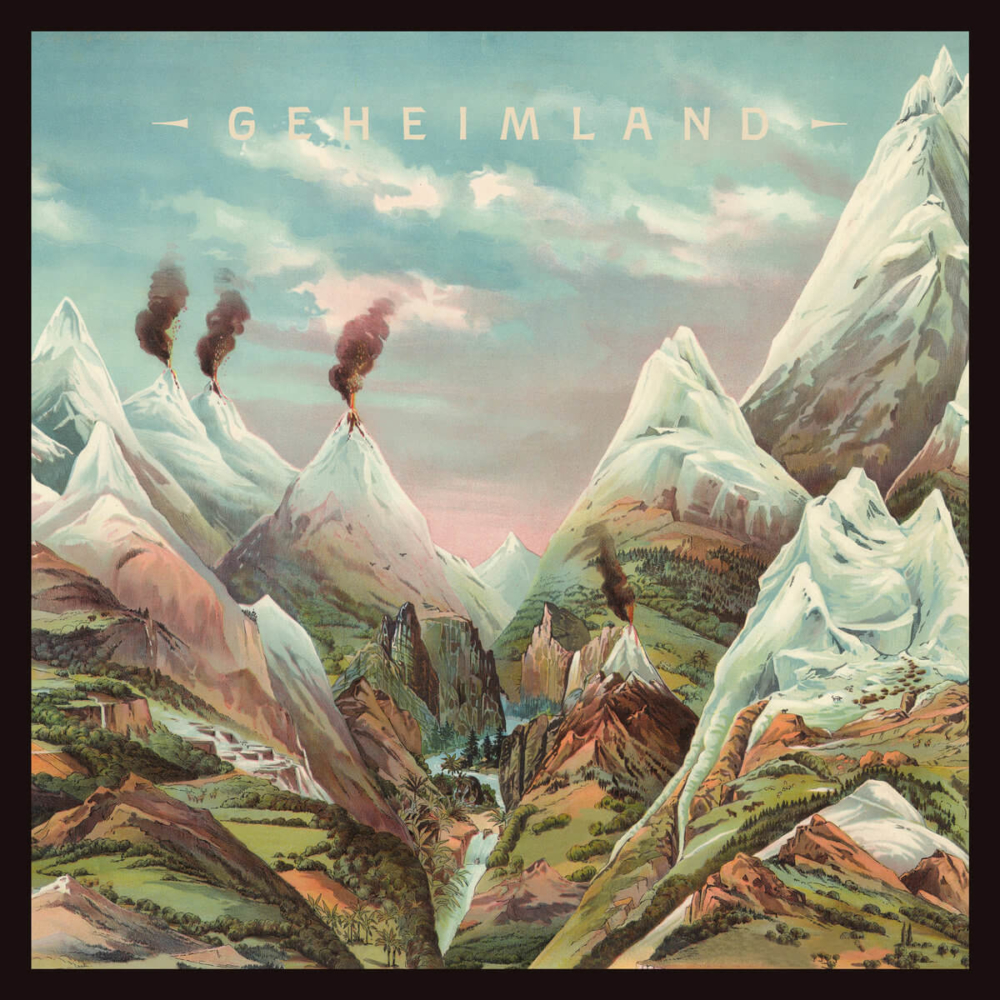
EG: How does ‘Geheimland’ differ from your previous works?
Urbs: All my albums differ a lot, maybe because my tastes are so diverse. It’s totally possible I’ll release a rock record once. I certainly have improved my skills on my particular setup as I’ve used the same gear for about ten years now. I think that helps staying focussed and it saves a lot of money. So I guess my improved production skills are the most obvious difference, although I still don’t really know what I’m doing, to be honest.
EG: What themes and musical elements can listeners expect to find on the album?
Urbs: The themes are in the heads of the listeners and I hope the music will evoke the most beautiful mind movies. The record is called ‘Geheimland’, a word my son invented at the age of three. It’s a place where only he and a few of his friends can go and he often describes the place in the most astonishing monologues. Everything is a little bit different there and I thought it’s a beautiful word and it fits the album perfectly. I hope it’s the kind of music that’s beyond genres, something entirely unique. Sure, it’s downtempo electronic music with samples and instruments played in equal measure, but it’s still hard to pin down to one specific genre, which I think is ideal. The mood is peaceful, a little strange and mystical in places and it has its darker side too, but all in all, ‘Geheimland’ is a very beautiful place. You should visit!
“Everything is a little bit different there and I thought it’s a beautiful word and it fits the album perfectly. I hope it’s the kind of music that’s beyond genres, something entirely unique”
EG: Can you tell us about any upcoming projects or collaborations that you´re excited about?
Urbs: I think that’s an interesting path I’ve been taking, but I have absolutely no idea what comes next. When I was working with Cutex, the words “success” and “career” seemed completely abstract to us. We were totally embracing our own wackness and just having the most fun we could, constantly laughing our asses off. In the process, we created some pretty good stuff, as a kind of side effect. That´s the only way it works for me, I can’t plan ahead. If I’m in the mood or if I’m asked to, I’ll make more music and, if not, I’ll still be perfectly happy and do something else. I love cooking and most times it’s more fun than working in the studio because the results don´t take so long. So my next project is on Saturday when we have guests over and I´ll cook a three-course dinner. We’ll laugh and have a good time and I’ll be hungover the next day.
EG: How does your music reflect or comment on current political and societal issues?
Urbs: Through escapism. It says it all without saying anything. I try to make music that has a peaceful vibe without being bland, even if I like a good argument myself. Music helps me get away from political and societal issues to be able to discuss those issues in real life.
EG: In your opinion, what role do you believe art and music play in shaping cultural and political consciousness?
Urbs: That depends on the sociopolitical framework of the respective region and era. It certainly played a part in the Western world of the late Sixties, as change was in the air in a general way, and music and art were accessible and accepted ways of transporting these new ideas. That’s our reference point, but it’s misleading. I don’t think music has much influence on the average Western citizen today, and amongst other reasons, that is a result of nonregulated technology rendering it worthless by oversupply and by logarithms taking choice away from the listener, offering streamlined distraction instead.
It still works on a more personal level though. If you are a passionate music lover, you will eventually be drawn to the musicians who offer the highest level of integrity. When I was listening to rock music in the 1990s, people like Ian MacKaye of Fugazi defined my moral compass. He still does. If you listen to techno and you’re a smart fellow, you’ll eventually be drawn to the integrity people like Underground Resistance represent, and if you listen to hip hop, Chuck D will be the man to form your views on politics and morale. I’m not sure who the current equivalents are because nowadays everybody seems to be caught up in the system to a certain degree.
EG: Lastly, what advice would you give to aspiring musicians and producers?
Urbs: Try to enjoy the process as much as you can. The process of making music is the most beautiful part, I’d even say it’s all that it’s about, even when it´s painful. Don´t compare your sound with other people’s sound. For better advice read the Red Hand Files blog run by Nick Cave.
URBS’ new ‘Geheimland’ is out now via Compost. Purchase your copy here.
Follow URBS: Facebook | Soundcloud | Spotify

